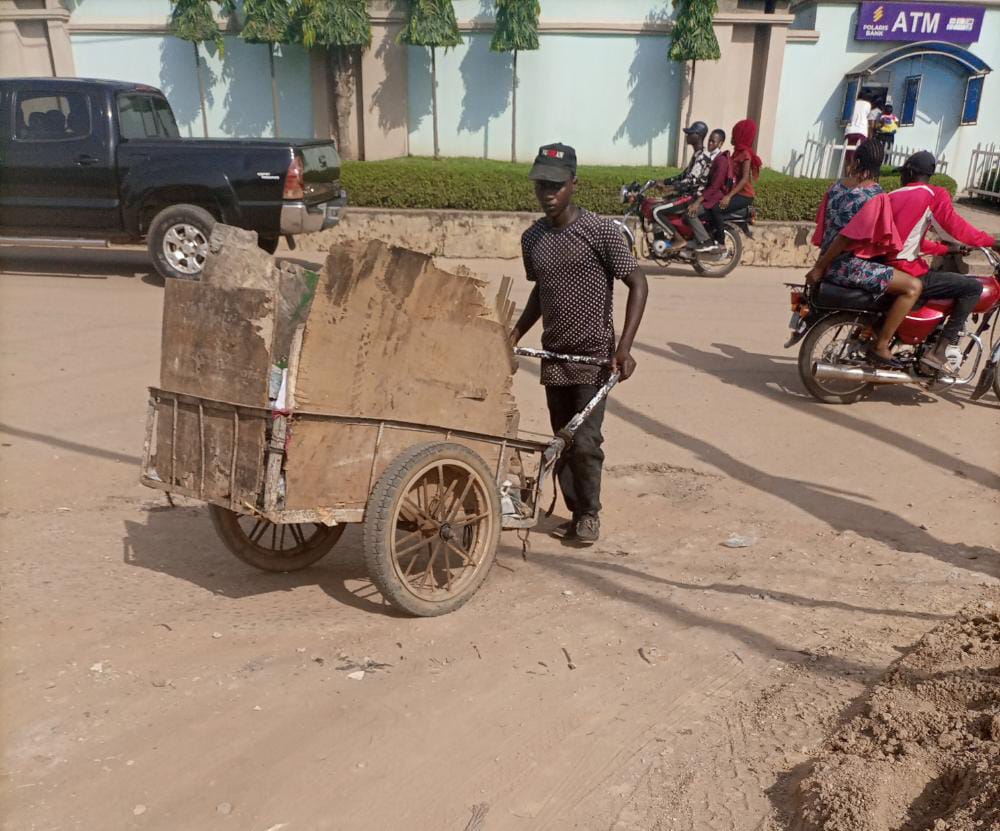Residents of Gwagwalada Area Council of the FCT have said that the hike in collection price by local waste collectors, popularly known as baban bola, has forced them to adopt alternative means of disposing of their waste.
The residents, who spoke on Tuesday, said that because of the hardship in the country they had no option than to be more creative in their waste disposal efforts.
They, however, acknowledged that their waste disposal options might have negative implications on their health.
A resident explained that they were left with no option than to do things their own way, including dumping refuse indiscriminately, instead of paying high amounts to the local waste collectors.
Mrs Eunice Nwafor, a resident of Phase 3, said that she had resorted to burning her waste instead of patronising the baban bola.
She said, “These baban bolas are now becoming very expensive and I cannot continue to patronise them. I have resorted to burning my waste instead of paying so high on a weekly basis to dispose of it. It might not be the best for the environment and my health, but I have no other choice.”
Ms Hannatu Isiaka, a resident of Old Kutunku, said, “I use to gather my waste and throw it on any dumpsite I see around. Most times when it is raining I will pour the waste inside the gutter in front of my house and the rain will carry it away.
”Although my way of waste disposal is not good for the environment, I have no choice but to dispose of it that way.”
Hannatu urged the government to provide waste collection bins at designated places where residents could dump waste for proper evacuation.
Mrs Olabisi Adegbenga, a resident of Compensation Layout, said the absence of officially designated waste collectors in Gwagwalada had increased the demand for the services of baban bola.
This, she said, made them increase the price of waste collection.
She said the prices of their services had continued to increase, noting that initially to empty a large bucket of dirt was between N150 and N250, but that now it cost as high as N400 to N500.
She said, “Since there is no government waste evacuation vehicle, we have to make do with what is available. Although it is not the best choice because of the mode of disposing waste and its effects on sanitation.”
Mr Usman Adamu, a local waste collector, said the continuous increase in the prices of foodstuffs and the current hardship in the country forced them to increase the cost of their services.
Adamu said the service he rendered to residents was his only means of livelihood, adding that he would continue to increase his price as prices of other things continued to soar.
He noted that, “Some of my customers no longer patronise me; some of them now dispose of their waste by themselves while others burn their waste.
“I will reduce my price when costs of foodstuffs reduce in the market.” (NAN)

 Join Daily Trust WhatsApp Community For Quick Access To News and Happenings Around You.
Join Daily Trust WhatsApp Community For Quick Access To News and Happenings Around You.


